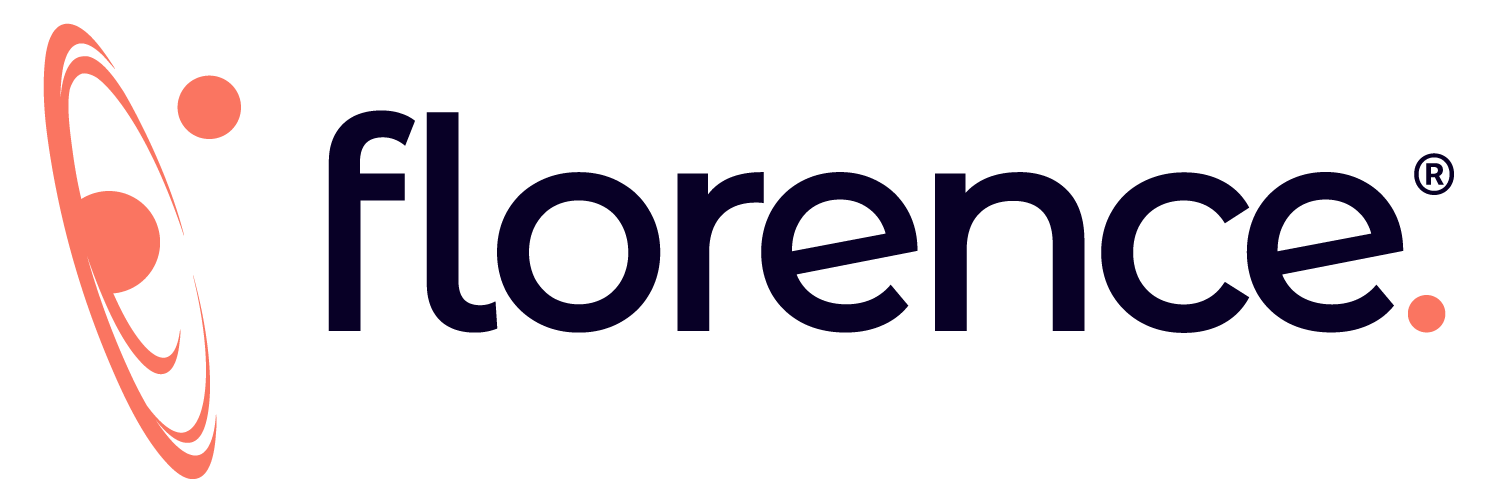Florence Culture
What’s here?
Our values help us make the best decisions, decisions that are most “us.”
Experimentation is our superpower.
We’re deeply curious people who believe that the process of experimentation will always reveal the right answer. We ask everyone to show up with great questions, actively challenge assumptions, and look in corners others skip for ideas and inspiration. We speak up with excitement, humility, and confidence, knowing that once we commit to a plan, we all share the outcome, and remember that any “failure” is just another step closer to the best solution.
Shipping is the game.
We’re a culture of “doers” — a team of people who know how to make ideas real, who don’t need permission to do the next thing, and who understand how to work well with others. We get that maintaining momentum is everyone’s responsibility, so we keep it moving even when there are snags or setbacks. We ideate. We create. We ship. We polish and repeat. We have a good time and make the world a better place in the process.
Integrity is non-negotiable.
To move fast and iterate for the future we’ve got to be able to rely on one another. This means we’re present for each other, accountable, and constantly seeking ways to improve. The truth is, our industry demands it. If we want to grow our impact — if we want clients to recommend us — we have to gain and maintain trust by meeting our commitments, and exceeding expectations, across the board.
Being good humans is the point.
We believe that good humans make great cultures and that great cultures do groundbreaking work. At Florence, we recognize that this comes down to creating a community where everyone feels safe — to be themselves, do their best work, take risks, make mistakes, and to even check out. We celebrate and encourage time spent with family, friends, hobbies, and passions, knowing that it makes us the best versions of ourselves. “Brilliant” jerks need not apply.
What are our leaders all about? Here at Florence we:
- Lead by example. Don’t ask your team to do something you wouldn’t do.
- Are direct & transparent. It’s better to be straightforward than to waste energy and create confusion shielding your team from the real story—No bullshit.
- Have a bias for action. Your team should be doing more, varied things than last year. Use the scientific method to discover the truths that drive our growth.
- Trust and empower. We don’t buy into the lore that products can be excellent only if CEOs are singularly involved in the details.
- Use examples with data to show what we mean. We don’t tell with bullets.
Our views on hiring and career development:
- On candidate qualifications: We hire high-performers that are the best cultural fit with transferable skills over those who only bring specific experience, education, and/or skill sets.
- On learning curves: New hires should know that they are not expected to come up with answers right away; instead, Teammates’ experience should help inform the right questions.
- On teammate retention: Everyone has a career path – Florence advances because of the advancement and alignment of our teammates’ growth.
- On teammate exits: Sometimes, we discover we might not be the right fit for a teammate, which is okay. We work to make an exit transition a win for the teammate and us.
- On advancement: Hiring brilliant people is only the first phase. We don’t stop there – we focus on future career growth aspirations at the individual level and then empower them to get there.
- On reward: We’re a meritocracy. Those that distinguish themselves get the most resources.
- On professionalism: We don’t hire brilliant jerks. The key to our success is laid in the respect that we have for each other. We hold this in high regard.
How we make decisions.
- On ownership: We believe in ownership. Ownership is beneficial to the teammate and beneficial to the team.
- To the teammate, it provides an important psychological reward when things go well. If instead, things go sideways, we’re not afraid to be transparent about it. We work as a team to set up our next experiment.
- Ownership enables decisiveness. It empowers teammates and leaders alike to make decisions and take action. We can’t wait for all information or the perfect answer, and ownership permits progress at the right pace.
- We rely on leaders to own key decisions. They are not arrived at by consensus: Hiring and firing, investment, launch and delay, program creation, among others.
- On complex matters: Debate is good. While we rely on leaders for key decisions, they need to do foundational work to have conviction. A way to do this is group debate, which requires leaders to compel and convince with data, and leads to more informed and better decisions.
- On customer matters: We don’t know what customers need; our customers do.
- The legend of Apple’s Steve Jobs was that his micromanagement made the iPhone a great product. Others take it to new extremes, proudly calling themselves nano-managers. The heads of major networks and studios sometimes make many decisions in the creative process of their content.
- We do not emulate these top-down models because we believe we are most effective and innovative when we solve our customer’s needs as a team.
We are Mothers, and this is our principle for growth.
We spent a lot of time thinking about how we want to interact with our customers. There are several valid personas we could take on (from Get to Aha!):
- We could assume a Mechanic’s Persona, focusing on technical details above others. Microsoft and Google exemplify this.
- We could take on a Missionary Persona, focusing on what we know to be the future. Apple exemplifies this.
- Or we could take on a Mother’s Persona, focusing on our customers’ needs and responding directly to them. Nordstroms, Hallmark, and Disney exemplify this via “magical” experiences throughout the customer’s life cycle.
Our result? We are most assuredly Mothers and relate to the marketplace by building for and serving our customers with white-glove service, better than any of our competitors. As a Mother, we intimately know and serve the various user personas of our customer base. We achieve innovation through preparing, educating, (and sometimes maternal nudging) our customers to gain the trust and confidence to fly with us.
A motherly focus on and understanding of others’ feelings and experiences without having them ourselves —or empathy—helps us be maximally effective, largely because empathy is universally applicable to business problems. There’s always someone on the other end that you have to understand better to solve the problem.
Tactical stuff
- Efficiency is in our DNA. Consider how not to waste your or others’ time.
- Our policy for travel, entertainment, gifts, and other expenses is five words long: “Act in Flo’s best interest.”
- We have a mandatory minimum vacation policy that is three weeks per year. There is no maximum vacation policy.
- What does non-vacation time look like? We work flexible hours. Sometimes this means answering emails at odd times; for others, this means taking a weekday afternoon off.
About the Author

Ryan Jones is co-founder and CEO of Florence Healthcare. Florence advances clinical research through software – its electronic Investigator Site File (eISF) helps thousands of research teams around the world take their day back from paper. Before joining Florence, Ryan was President of Pubget, a research platform serving clinicians at over 600 hospitals and research institutions worldwide. A frequent speaker, he enjoys facilitating conversations between clinical research professionals in support of Florence’s mission to advance research. You can connect with Ryan on Linkedin here.

